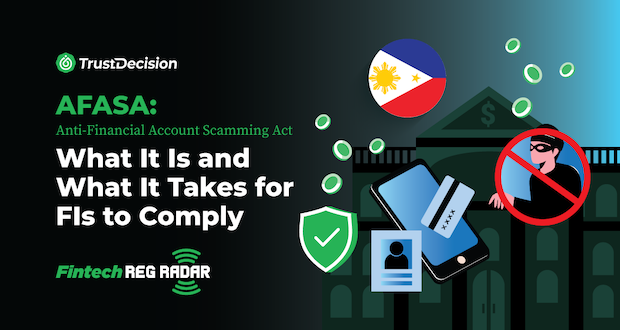Understanding Location Spoofing vs. GPS Spoofing
Defining Location Spoofing and GPS Spoofing
Location Spoofing involves altering or falsifying location information to deceive systems or applications. It’s a broader concept that encompasses any manipulation of location data. For instance, users might modify their smartphone’s location settings to appear in a different city for privacy reasons. Similarly, fitness app users may fake running routes to achieve higher step counts.
On the other hand, GPS Spoofing specifically targets the Global Positioning System (GPS) signals. Malicious actors manipulate these signals to deceive GPS receivers. Imagine a scenario where a hacker broadcasts fake GPS signals, causing ships or drones to deviate from their intended paths. Additionally, ride-sharing drivers might simulate longer routes using GPS spoofers to overcharge passengers.
Similarities and Differences
While both location spoofing and GPS spoofing involve altering location data, they differ in scope, intent, and impact:
- Similarities:some text
- Both involve manipulating location information.
- Both can impact navigation, logistics, and user experiences.
- Both require vigilance for detection and prevention.
- Differences:some text
- Scope: Location spoofing covers any alteration of location data, while GPS spoofing specifically targets GPS signals.
- Intent: Location spoofing may be harmless (e.g., privacy concerns), but GPS spoofing is often malicious.
- Impact: GPS spoofing can have severe consequences, including safety risks and financial losses.
Real-World Applications and Impacts
- Food Delivery: In the food delivery industry, spoofing location can lead to drivers appearing in different areas than they are, causing delays and missed deliveries. This not only frustrates customers but also affects the efficiency of delivery operations.
- Gaming Apps: In gaming apps, fake GPS locations can give players unfair advantages, such as accessing location-based rewards or features unavailable in their actual geographic area. This undermines the integrity of the game and can lead to a loss of genuine players.
- Logistics and Transportation: GPS spoofing can mislead tracking systems, causing logistical nightmares and potentially leading to lost or delayed shipments.
- Ride-Sharing Services: Drivers using location spoofing can manipulate their position to gain more rides or avoid certain areas, disrupting the service and affecting customer satisfaction.
Understanding the nuances between location spoofing and GPS spoofing is the first step in developing effective strategies to combat these threats. By recognizing how these tactics can impact real-world applications, businesses can better prepare to protect their operations and maintain their customers' trust.
The Impact of GPS Spoofing on Industries
Food Delivery Services
GPS Spoofers and Delivery Inefficiencies: In the fast-paced world of food delivery, accurate location data is crucial. Whether it’s a pizza arriving at your doorstep or a gourmet meal for a special occasion, timely delivery matters, and GPS spoofing disrupts this delicate balance. Imagine a delivery driver relying on falsified GPS coordinates. Instead of taking the optimal route, they unwittingly venture into a maze of wrong turns and dead ends. The result? Late deliveries, frustrated customers, and potential revenue losses for businesses. Trust, once broken, is hard to regain, and the ripple effect extends beyond a single order.
Customer Dissatisfaction: Consider the disappointed customer who eagerly awaits their meal, only to receive it cold and soggy. The app promised a 30-minute delivery window, but the driver’s GPS spoofer led them astray. The customer experience takes a hit, and negative reviews pile up. In an industry where speed and reliability are paramount, GPS spoofing undermines the very essence of food delivery—getting the right meal to the right place at the right time.
Gaming Apps
The Role of Fake GPS Locations: Cheating and Unfair Advantages: Gaming apps thrive on immersion and engagement. Whether it’s catching virtual creatures in augmented reality games or conquering virtual kingdoms, location-based features add excitement. But here’s the catch: cheaters exploit fake GPS locations. In games like Pokémon GO, spoofed locations allow players to capture rare Pokémon without leaving their couch. They teleport across continents, bypassing physical exploration. The thrill of discovery turns into a scripted farce. Fair competition evaporates, and the gaming community suffers. Imagine a marathon where some runners secretly hitch a ride on a scooter—the spirit of the game is lost.
Other Affected Sectors
Logistics and Supply Chain: Behind the scenes, logistics companies orchestrate intricate dances of trucks, warehouses, and delivery routes. GPS spoofing disrupts this choreography. A truck veers off course due to manipulated coordinates, delaying shipments. Inventory management falters, and supply chains hiccup. The impact ripples the entire ecosystem, affecting businesses and end consumers.
Ride-Sharing Services: Ride-sharing platforms rely on precise location information to match drivers with passengers. Imagine a rider waiting at the wrong corner because the driver’s GPS spoofer placed them across the street. The frustration mounts, and the promise of convenience crumbles. Fair fares become elusive when routes are artificially extended. Passengers pay the price—both literally and figuratively.
Safety and Emergency Services: In critical moments, every second counts. Ambulances, fire trucks, and law enforcement vehicles depend on accurate GPS navigation. GPS spoofing jeopardizes response times during emergencies. Imagine a fire crew racing to a burning building, only to find themselves blocks away due to manipulated coordinates. Lives hang in the balance, and safety protocols falter.
The impact of GPS spoofing extends across various industries, disrupting operations, increasing costs, and eroding customer trust. Recognizing these challenges is crucial for businesses to develop effective strategies to detect and mitigate the risks associated with GPS spoofing.
Techniques to Detect GPS Spoofing
Traditional Methods to Detect GPS Spoofing
Traditional methods to detect GPS spoofing have primarily relied on signal analysis and consistency checks. One common approach is to monitor the signal strength and quality of GPS signals. Genuine GPS signals have consistent strength and quality, while spoofed signals may exhibit irregularities. Another method involves cross-referencing GPS data with other location data sources, such as Wi-Fi or cellular networks, to identify discrepancies. Additionally, time synchronization checks can be used, as spoofed signals often fail to align perfectly with the precise timing of genuine GPS signals. While these methods can be effective to some extent, they often require significant manual intervention and may not be foolproof against sophisticated spoofing techniques.
Advanced Techniques: AI and Machine Learning
As GPS spoofing tactics become more advanced, traditional detection methods are increasingly inadequate. This has led to the development of advanced techniques leveraging artificial intelligence (AI) and machine learning. AI-based systems can analyze vast amounts of data in real-time, identifying patterns and anomalies that may indicate GPS spoofing. Machine learning algorithms can be trained on historical data to recognize the subtle signs of spoofing, such as unusual movement patterns or inconsistencies in signal timing. These systems can continuously learn and adapt, improving their accuracy over time. By automating the detection process, AI and machine learning offer a more robust and scalable solution to the growing threat of GPS spoofing.
Role of GPS Emulators in Testing and Detection
GPS emulators play a crucial role in both testing and detecting GPS spoofing. These devices can simulate GPS signals, allowing businesses to test their systems' resilience against spoofing attacks. GPS emulators enable companies to identify vulnerabilities and refine their detection mechanisms by creating controlled environments where spoofing scenarios can be replicated. Additionally, GPS emulators can be used to validate the effectiveness of AI and machine learning models, ensuring they can accurately distinguish between genuine and spoofed signals. This proactive approach helps businesses avoid potential threats and enhances their overall GPS data integrity.
Detecting GPS spoofing requires a multi-faceted approach that combines traditional methods with advanced technologies. While traditional techniques provide a foundational layer of defense, AI and machine learning offer the sophistication needed to tackle more complex spoofing attempts. GPS emulators further enhance these efforts by enabling rigorous testing and validation. By integrating these techniques, businesses can significantly improve their ability to detect and mitigate GPS spoofing, safeguarding their operations and maintaining the trust of their customers.
TrustDecision’s Device Fingerprint
TrustDecision's Device Fingerprint Solution offers a sophisticated and reliable method for identifying and authenticating devices by examining unique device attributes and behaviors. This advanced solution is designed to ensure the integrity of GPS data by detecting anomalies and potential spoofing attempts. TrustDecision's Device Fingerprint Solution provides a robust defense against GPS spoofing, helping businesses maintain accurate and trustworthy location information by leveraging a comprehensive set of device-specific data points.
Comprehensive Device Profiling
This feature involves collecting and analyzing a wide range of device attributes to create a unique fingerprint for each device. These attributes include hardware identifiers, software configurations, network information, and behavioral patterns. For instance, hardware identifiers such as IMEI and MAC addresses provide a foundational layer of identification. At the same time, software configurations like installed applications and operating system versions add another dimension of specificity. Network information, including IP addresses and connection types, further enriches the profile. By compiling this extensive data, the solution generates a unique fingerprint for each device, making it easier to identify and authenticate legitimate devices while detecting potential spoofers.
Anomaly Detection
TrustDecision utilizes advanced algorithms to identify unusual patterns and behaviors indicative of GPS spoofing. These algorithms recognize deviations from established norms by continuously analyzing device data. For example, machine learning models can be trained to understand typical device behavior and flag any deviations that might suggest spoofing. This includes monitoring real-time device activity to identify suspicious actions and cross-referencing multiple data points to ensure consistency. TrustDecision's solution can quickly flag any inconsistencies that deviate from expected behavior by detecting these anomalies, providing an early warning system against potential spoofing attempts.
Real-Time Monitoring
Real-Time Monitoring is a proactive feature that ensures continuous oversight and immediate response to potential spoofing activities. TrustDecision's Device Fingerprint Solution keeps a constant watch on device activity and GPS data, allowing it to detect spoofing attempts as they occur. The system sends instant notifications to relevant stakeholders when suspicious activity is detected, enabling prompt action. This real-time alert system ensures that businesses can quickly address any detected threats, minimizing the impact of GPS spoofing on their operations. Additionally, the solution can be configured to automatically take predefined actions in response to detected spoofing attempts, such as blocking the device or initiating further verification processes.
By integrating TrustDecision's Device Fingerprint Solution into their operations, businesses can significantly enhance their ability to detect and mitigate GPS spoofing. This advanced solution ensures the integrity of GPS data and helps maintain the reliability and trustworthiness of location-based services.
Conclusion
Ensuring the integrity of GPS data is more critical than ever in today's interconnected world. Industries ranging from food delivery to gaming apps rely heavily on accurate location data to maintain operational efficiency, customer satisfaction, and competitive fairness. However, the rise of GPS spoofers and the increasing prevalence of fake GPS locations pose significant threats to these industries. Understanding and addressing these challenges is essential for businesses to protect their operations and maintain the trust of their customers.
Advanced technologies, such as TrustDecision's Device Fingerprint Solution, are pivotal in combating location spoofing. By leveraging comprehensive device profiling, anomaly detection, and real-time monitoring, TrustDecision provides a robust mechanism to identify and authenticate devices, ensuring the integrity of GPS data. These advanced AI-based solutions offer businesses a powerful tool to detect and mitigate spoofing attempts, safeguarding their operations and maintaining the trust of their customers.
Remember, the battle against GPS spoofing isn’t just about technology—it’s about safeguarding the reliability of our digital maps, deliveries, and journeys. Let’s navigate this challenge together!

.jpeg)












